During the darkest days of our infertility journey, my prayers went like this: “How long O Lord? How long will you keep us childless?”
There’s not a lot of joy in this. Asking for the same thing over and over. Being stuck.
And as I was recently reading, Michelle Obama's new memoir, Becoming, she talks about this very pain in her own journey. Learning this about a very public figure is a good reminder that infertility is more common than we think.
So, no matter what we are waiting for, where do we find inspiration for our "stuck" times?
Simeon and Anna have become two of my waiting heroes in the Bible. Luke's account tells us that night and day both of these seniors devoted themselves to prayer and waiting for Jesus to arrive in the temple after his birth.
Simeon and Anna waited and waited. And they waited some more.
(If you want the full story, read Luke 2: 36-38).
Anna's entire purpose after her husband died was to be on this waiting journey—to be that prophetic voice that spoke the truth about baby Jesus who was yet to be born.
And then one day (gasp!) Jesus arrived at the temple with Mary and Joseph. Anna knew immediately! She spoke truth. Jesus was God’s Son. Her waiting was not in vain.
But, the longer I waited too, the more gifts the season of waiting gave.
I learned: who I am right now is ok.
I practiced: what I am doing right now is good (even if it not what I would have chosen).
For, no good waiting season is ever wasted time.
God is a mystery beyond all my understanding.
(And if you've met her, you can testify that this is true).
It's not because as many might think "I got what I always wanted."
Or I finally could feel at home in mom's circles.
Or because I could stop crying so much over my Christmas Eve sermons.
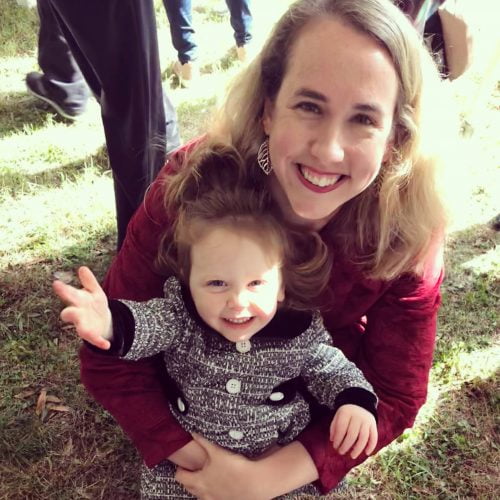 I rejoiced in motherhood as I bet Anna rejoiced over Jesus in the temple that day.
I rejoiced in motherhood as I bet Anna rejoiced over Jesus in the temple that day.
I am different kind of mother thanks to infertility. There's no small joy I take for granted. There's no milestone that I don't want to celebrate. There's no happy picture I can't wait to share with family and friends of the fun things we get into (sorry, friends, if I text you too often).
Adoption seemed too hard, too out of reach. Something we'd tried and had failed at too.
Well, until, it happened.
These days, I still look my daughter eyes with joy as she splashes in the bathtub, asks for more water before bedtime, or exclaims she wants to go to the playground yet again, and I thank God.
I thank God for the gift of growing up with her, learning from her and being HER mother.
My waiting season has brought me this joy.
I pray whatever it is that you're waiting on right now, you'll have the courage to keep waiting on joy too! Somehow, someway, it will come.
You won't be stuck forever.
This time last June, Kevin and I were sitting in the airport panicked. Several of the flights we'd booked were canceled or delayed. We didn't know we'd make it to the hospital in time. The girl who would enter our family as a daughter was soon to be born. Though we arrived in the middle of the night, we made it with time to spare. And when a little girl came fighting her way into the world our lives were forever changed by the word "adoption." She'd soon be placed in my arms (and later Kevin's too) and we'd be asked to feed her that night and every night in all the days to come. And we'd begin the journey of loving her more than we ever thought was possible.
And here's the thing about adoption. It's an experience that's impossible to describe unless you've walked in its shoes. It comes with complicated feelings. It comes with questions that often can't be answered.
One friend of mine and fellow adoptive mom summed it up well: "Adoption is full of sharp edges."
For when Kevin and I think of the magnitude of this gift given to us, our hearts overflow with intense gratitude. We love our baby girl so much. We couldn't think of a more perfect addition to our family.
Yet, on the other end of the spectrum, there's the edge of pain. We know that our girl will grow up and put the stories of her life together with loss too. She'll have to wrestle with her identity and place in this world. It's a sharp reality too that I wish weren't so.
But (and it is a huge BUT), in the meantime our girl is just like any other kid.
Every day is an opportunity to be with her, guide her and parent with love.
In the past year, she's learned to sit up, crawl, eat solid foods, ride on an airplane with ease (because her parents are crazy nomads) and most recently walk like a little girl determined to be a big part of any room she's in.
She's learned to love music and toys that make noise. Recently she's found a lot of joy out of throwing a ball and playing with her mom's hair. She knows that her father is the one that will rock her extra long if she's not in the mood to go to sleep. And if you want to see her smile, give her a bath. The excitement of being in water makes her giggle and giggle some more.
And on this night, she's a girl whose about to turn one year old - sleeping peacefully in her crib.
So with all of this true, what bugs me about the traditional label of adoption is that it's what our culture often elevates it to THE story about a child or about their family. Assumptions are made that are not necessarily true. And people forget that day-to-day life goes on. In our case, day-to-day life this year has been a lot of washing bottles and changing diapers and snuggles in the middle of the night.
In a thousand ways every day, Kevin and I get to wrestle with the privilege and normal challenges that come with parenthood.
I also want to tell you this: I know I will always be protective of our girl. I will roar like a mamma bear when anyone tries to make her feel less than. Because she's awesome. Really, really awesome! And I am glad I get a front row seat to her life.
I know I will want to always remind others that while baby girl came to our family in way that is unique, she is still just a girl who needs to connect, to feel loved, and to feel valued.
If anyone asks her who she is, I pray she learns to answer by saying, "I'm a beloved a child of God."
She's also a Hagan. And the Hagan family together has had a great year! 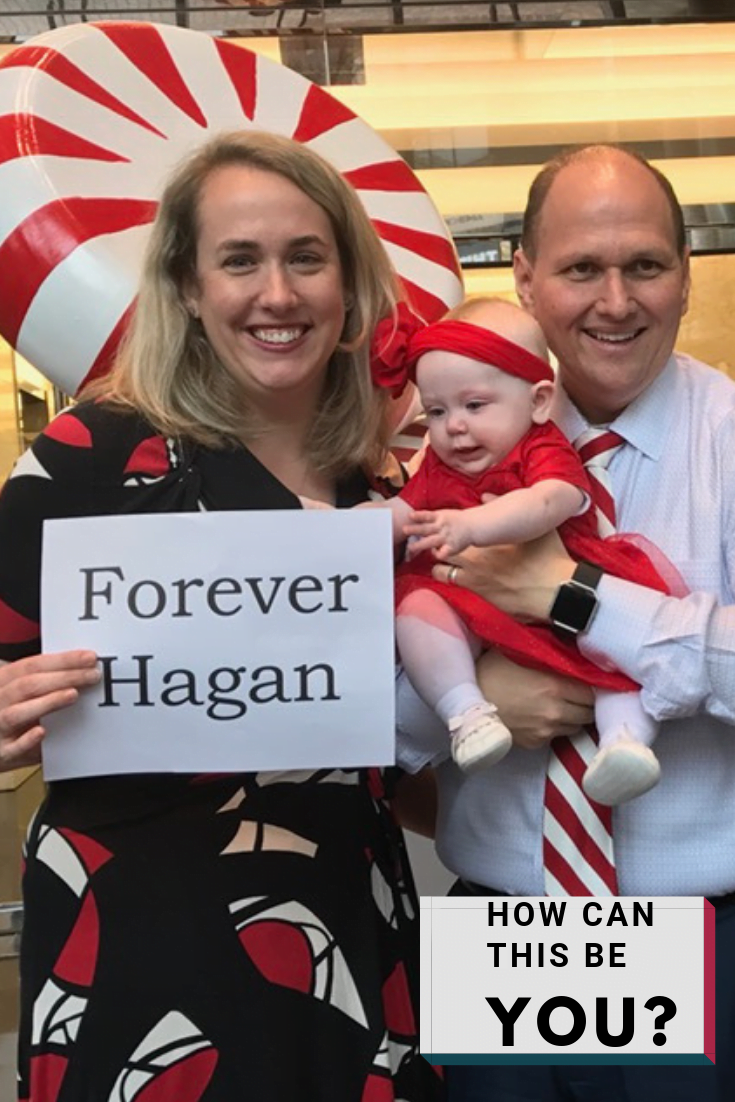
Don't give up hope.
If you've read my book, Birthed, I believe you gleamed from the pages that no matter how many times Kevin and I got beat down in our journey, we never gave up hope to be parents. Never.
There were times when we wanted to-- for the pain of our broken hearts was just too much to bear.
There were times when for our mental health it would have been easier if we let the dream die.
There were times when we had to re-imagine what parenthood looked like for us.
In this longing, sometimes Kevin held the hope banner for the two of us-- for I was just too exhausted. Other times, I held it for him when he was just so frustrated he didn't know what to do. So we kept going. The next step. The next step. And the next.
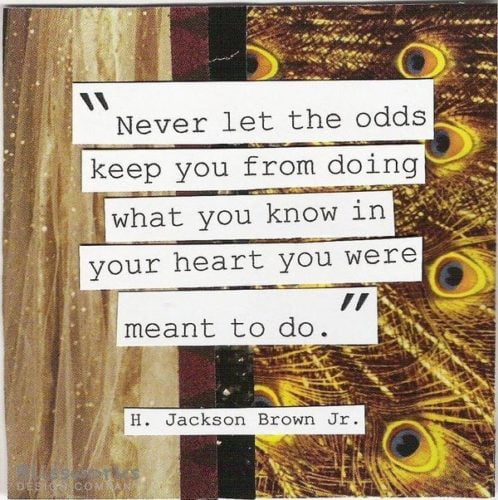 I've known my whole life I was meant to be a mother. And ever since I met Kevin, I knew he'd be the best father.
I've known my whole life I was meant to be a mother. And ever since I met Kevin, I knew he'd be the best father.
You say because something is hard then "It wasn't meant to be." You stop trying to proactively live your dreams when the cost is great. You blame God for not giving you what you think you deserve. And you stop living.
All of this is normal because life can be oh, so brutal, my friends. It can kick us down in the deepest pits that we think we're never going to crawl out of! It can take from us all our strength, making us believe that we're simply finished. It can totally snatch away all of our comforts. It can.
It buries itself deep in our hearts and won't let us go. It encourages us with teachers-- teachers that appear when we least expect. And it looks us in the eyes and says clearly: "Oh my dear, your longings aren't stupid. Believe!"
Hope is life's great calling, I believe.
I'm so thankful that when we were ready to give up . . . to say that what we had was good enough . . . to say that we had so many blessings to count . . . why ask for more?
And we did it. We kept holding space in our lives and our home for a child.
A child, young or older, a child of any nationality and or race, a child from anywhere really, that was meant to be in our family.
So know this: when the time came for a girl to come into our lives, I was in awe. All we had to do was hold on for the ride. Grace surprised us with its pace.
And when we knew it was official . . . that this great thing was really happening . . . Kevin and I felt so much joy (and still do). So much joy that we held each other tight and felt so much pride that we overcame what could have broken us. (It really could have!)
As for you, my friends, don't give up hope whatever your dreams are! Listen to your longings. Keep praying. Keep working. Keep believing and listening to those voices that say "You can."
Pure and genuine religion in the sight of God the Father means caring for orphans and widows in their distress. - James 1:27
If you’re looking for practical theology, you have no farther to look than the book of James. And according to James the call is simple: your faith must include the care of widows and orphans.
In agreement with this, many Christians have banded together in care for vulnerable children in particular. You can find most of these groups in the membership roster of the Christian Alliance of Orphans (CAFO)—the largest collective of Christian based ministries devoted to concerns such as orphan care internationally, adoption, foster care in the United States, child trafficking, and teen runaways.
As a collective body of disciples of Jesus, they’ve said with their actions that it’s our job as people of faith to love all children, no matter what circumstances they find themselves in. Invisible children will be invisible no more! And the church, these advocates say, must rise up and be more inclusive of this calling. To do this and build community among it’s members, every year, CAFO hosts an annual meeting of 3,000+ leaders called Summit.
In 2013 as part of our family’s work with Feed the Children, I attended this meeting in Nashville, TN and loved the energy and enthusiasm of those speaking and teaching. My curiosity peaked. Like a sponge, I gladly learned what I could about such important concepts as attachment parenting, restorative therapies and what adult adoptees really thought about their institutional experiences from childhood. It was great to apply what I learned to the kids we met during all our travels. 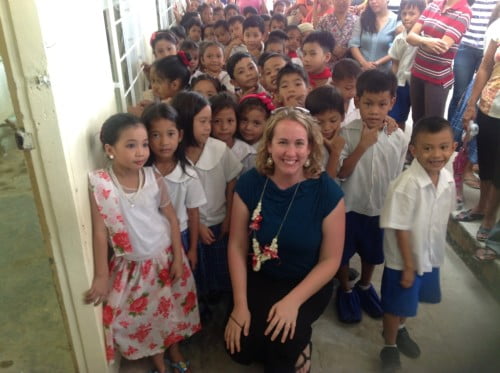
Though my husband’s job has changed now, I’ve realized over the last year that orphan care ministries is something I want to be a part of the rest of my life. What I saw and experienced during our three years of globe-trotting are children, I can’t un-see. Children in less than adequate homes. Children without access to education beyond primary school. Children who really worry late at night if they are loved. I want to be a protector of vulnerable kids like these. I want to continue to lend my voice and resources to help in any way I can (which is why I recently traveled back to East Africa). I want to help other church leaders feel empowered to do the same.
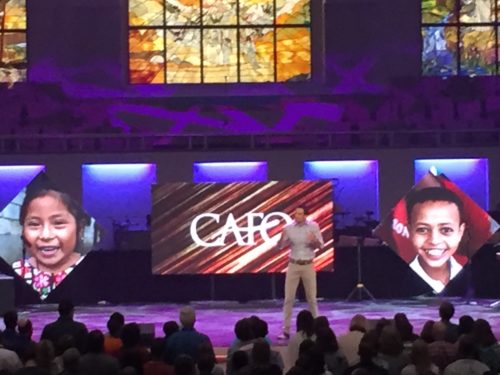
So, again I connected with CAFO at this year's meeting May 5-6th in Orlando. It was great to be in a wonderful community of Christians thinking critically about what best practices in orphan/ foster care looks like. And again, I left the conference last week convicted by these stats—
This is what I know for sure: these are facts few in the church ever talk about. It's the kind of work we often leave for "someone else." But, I am confident that God’s heart is always on side of the most vulnerable-- children without protectors. The question is: what are we going to do about it?
Want a simple way to think about beginning this conversation in your church?
Each year CAFO invites churches to participate in an Orphan Sunday emphasis. It’s an important day in congregations to raise awareness about children in the foster care system in your own town. It’s a great way to include those whose own stories or stories of their family have been touched by adoption. And it’s also a great day to talk about God’s desire for all of us to be adopted more fully into the kingdom of God.
Consider hosting Orphan Sunday on November 13, 2016. I’ll even come guest preach for you that day (I haven’t been asked yet). It's as simple as inviting a special speaker. Talking about the foster care system and it's needs in your community. Or, creating a call to action. The call of orphan ministry is one we can't ignore.
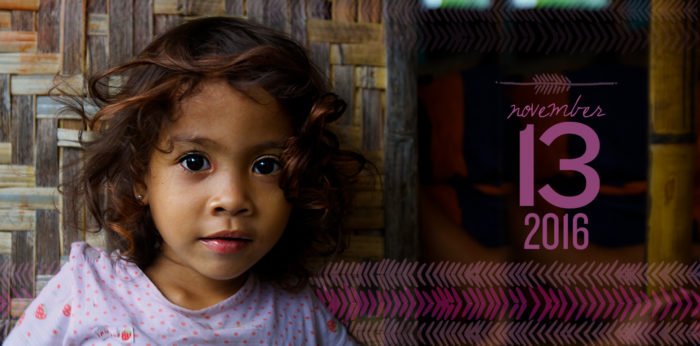
Rejoice in the Lord always; again I will say, Rejoice. Let your gentleness be known to everyone. The Lord is near. Do not worry about anything, but in everything by prayer and supplication with thanksgiving let your requests be made known to God. And the peace of God, which surpasses all understanding, will guard your hearts and your minds in Christ Jesus. Philippians 4:4-7
I have personally experienced Advent waiting and Advent rejoicing in a direct and obvious way. My first pregnancy occurred my last year of seminary, as I awaited a call, graduation and the birth of a healthy, wanted baby in February. My second pregnancy also extended through the Advent season, though it ended earlier, December 27, also with a healthy baby. My third time around, the baby came in late November, right on time. Advent that year involved less literal and spiritual waiting in favor of more mundane concerns---waiting for the baby to learn to breastfeed, waiting for him to sleep longer than three hours at a time.
It would be easy to write about the joy of those three events, and I do not minimize their beauty in the slightest. But I've seen too much, witnessed too much, in ten years of ministry, to leave it there.
I have been knocked over by the pain of caring for people whose IVF has failed.
Again.
I have seen the shell-shocked look of parents, still reeling from a miscarriage, trying to keep their heads down and survive The Most Wonderful Time of the Year.
And I have walked with a family in the church I serve who lost not one, but two sons to the same devastating illness. Both boys had received bone marrow transplants at a hospital in Minnesota to try to halt the disease's progression. Neither boy lived to see his 9th birthday.
It seems strange to talk about their stories in a devotional about joy. But joy is a strange visitor.
Yes, sometimes she bursts into the house unbidden. She charms everyone at the party, kicking up her heels, leaving a trail of flushed faces and smiles in her wake. You couldn't evict her if you tried, assuming you'd want to, and who would want to? She is the largest force in the universe.
Other times, joy passes through as quick as a flash---a scent of home, a snort of laughter, a shimmer of the transcendent. By the time you notice her, almost lock eyes with her, she's gone again, and the worry and waiting are back.
The family's story is theirs to tell, but as one who walked alongside them, the joy I saw was the second kind. It was a flash of dove wing, inexplicable and brief, amid the wringing of hands and wordless prayers. There was the day post-transplant when the marrow count started to grow, the visit from members of the Minnesota Vikings NFL team, a conversation about "normal things" during an afternoon off from the hospital.
I've always been struck, and mystified, by the double meaning in Paul's words. Apparently the Greek word for "rejoice" is the same as "farewell." I've never quite known what to do with that… except that maybe there's a bit of letting go at work in our pursuit of joy. This family has a quote on their wall that's attributed to Joseph Campbell: “We must be willing to let go of the life we planned so as to have the life that is waiting for us.” We cannot kidnap joy and hold her against her will. But we can look for her, and live in a posture of expectant trust that she will show up.
As I write this, the family has completed the paperwork and home study to adopt a boy from the Ukraine. And so our congregation waits with them again. But it is a feisty kind of waiting, a vigilant and hopeful waiting. Joy will burst in and stay a spell. Or she will shine momentarily and be gone, only to return at another moment. But she will come. We are certain of this.
Let us pray:
God of Joy, give me an expectant and ready heart to receive you, however and whenever you arrive. Amen.
 The Rev. MaryAnn McKibben Dana is a mother of three, the pastor of Idylwood Presbyterian Church in Falls Church, VA, and the author of Sabbath in the Suburbs: A Family's Experiment with Holy Time through Chalice Press. She is a frequent speaker and conference leader and is co-chair of NEXT Church, a movement that seeks to call forth and nurture vibrant and creative ministry in the PC(USA). This Advent is an active one, as she is hoping for her second book to come to birth, as well as her first marathon in January.
The Rev. MaryAnn McKibben Dana is a mother of three, the pastor of Idylwood Presbyterian Church in Falls Church, VA, and the author of Sabbath in the Suburbs: A Family's Experiment with Holy Time through Chalice Press. She is a frequent speaker and conference leader and is co-chair of NEXT Church, a movement that seeks to call forth and nurture vibrant and creative ministry in the PC(USA). This Advent is an active one, as she is hoping for her second book to come to birth, as well as her first marathon in January.
Third Sunday of Advent
[If you missed Susan's two previous posts, read about "Waiting with Hope" and "Love That Groans" from this midwife]
You who lie in the dust, awake and shout for joy, for your dew is as the dew of the dawn, and the earth will give birth to the departed spirits. Isaiah 26:19b
As a midwife, I adore the sound of a newborn’s first cry cracking through the silence of the birth room with all the majesty and promise of new creation, all the power of God in one frail, squirming, wet body. Each time, I am humbled. Each time, I am inspired. I see mothers and fathers reach new heights of joy and new depths of love in an instant, experiencing a glimmer of God’s love for them in the crashing wave of their own love for this newly born child. The unspeakable joy of this moment is more magical and miraculous that any other I’ve seen, but it would be a great loss to see only the monumental joy of birth and to miss the joys of preparation.
Waiting and preparing offer the gifts of heightened senses, tuned in, zoomed in awareness of the good graces in daily living: food, companionship, home. The ritual of “nesting” at the end of pregnancy can be a neurotic frenzy of angst and impatience, or a joyful preparation, an act of loving invitation for the beloved child one awaits. Waiting for labor as mother or midwife, surrendering to complete lack of control, inclines one to alternately live on one’s toes, primed and ready, and then to rest and shore up, preparing for work. I notice in this rhythm, when counting days, that hours crawl by, but life passes in a flash, so we must relish what is now. Joy’s invitation is to embrace the liminal space, the in-between, to be present to this exact moment, this exact gift, and to be grateful. Joy is born out of gratitude, and is a choice, an attitude, a muscle that must be exercised. Thus each chance we have to practice pausing and offering thanks in the midst of anxiety is an opportunity to grow our joy.
Two months ago, I was preparing to accompany my sister to Uganda any day. She is adopting a baby boy and has been waiting for a court date since late August. I’d had a full summer of work and travel and was ready to put my head down and plow through another several weeks away from my home and husband. Instead of unpacking from my previous trip, I just started packing for Uganda. But my bag sat open for one week, then another. I gradually pulled things out as I needed them and realized that I was languishing in a sort of no-man’s-land of time.
How could I settle in, get comfortable, and invest here and now when I might get called away any day? What should I do with these days, weeks, months that I didn’t expect to have at home?
I had somehow managed to forget all of the tools I’ve honed for living on call as a midwife: waiting for births, sticking to my rhythms and rituals as I wait, and picking them up as soon as I return. Cooking good food, exercising, and waking early in the morning all help me to stay oriented despite the unpredictability of my work. And when I’m at my best, loyal to my rhythms and rituals, I find deep joy in daily life and deep joy in the exciting interruption of birth.
Waiting for my sister’s adoption is no different. This is an invitation to be present to my home and my husband even as I wait for the exciting interruption of adventure. I have begun to embrace this in between time, gone for hikes and watched the leaves turn as seasons change, and still I wait. I am preparing a place for this child in my heart, and I relish the gifts of daily life, trusting that the time will come.
Let us pray:
God, please heighten my senses and tune me in to the small miracles of every day living, to the joys of preparation for that which I await. Teach me to grow my own joy through gratitude and presence in each moment of every day.
Susan currently lives with her dear husband and black lab in Edmond, OK where they attend St. Mary’s Episcopal Church. On any given day you will find Susan nurturing her small midwifery practice, her kitchen, and next year’s garden. Her hope for this advent is to be quiet, to reach deep into the soil of her soul with the tangled roots of her faith, and to find there the living water that nourishes new hope, love, joy, and peace into bloom.
Yet the LORD longs to be gracious to you;
He rises to show you compassion,
for the Lord is a God of justice.
Blessed are all who wait for Him! Isaiah 30:18
I am a woman in her 60’s -- a wife, mom, grandmother of five and a friend, among the other “hats and titles that everyone wears.” Only one of my five grandchildren came easily. Whereas I never had the struggle of personal infertility, I have prayed, longed for, and groaned with others who did. Because I was divinely designed with an innate desire to move toward others who are hurting, many times I have found myself in the place of listening to others and interceding for them, trying to read beneath their words when it was too painful for them to talk about their struggles. In essence, it was a “love that groaned” for them even when they did not know it. Sometimes, their refusal to talk about their struggle felt like rejection of me, but I learned I needed to give that up and wait -- waiting, loving, praying, and taking my eyes off of the rejection I felt and concentrating on how painful their waiting was.
“Waiting is oh, so hard!” said a young friend of mine. This mom, now a mother of four adopted children said to me, “With waiting, a baby easily becomes your idol. The appointments, daily shots consume your thoughts and conversations, and it can be a very isolating time unless you have someone else traveling the same road. Even then, it is painful when one conceives and the other does not. When we did IVF, it was very private. I was surprised when I saw acquaintances in the waiting room and was not sure whether or not I could talk to them about it.” This mom went through a necessary season of “groaning” before she could see the larger perspective of what was to happen with her life.
Her joy came when God clearly spoke to her about birth moms. She says, “I had never truly considered their perspective, and God gave me a certainty that adoption was the path for us to follow.”
Larger perspectives don’t come easily. For me, it means that I have to be honest about my human frailty that can become myopic -- centered only on my own difficulties. It is a wonderful act of God’s grace when God carries us beyond that place of groaning to a wider perspective that sees the greater need that is around us. This mom ‘s world changed when she began to consider the plight of the birth moms from whom she would receive her adopted children.
I do believe that “good things (can) come to those who wait.” After all, we have a God who “when the time had fully come, sent forth His Son, born of a woman, born under the Law, to redeem those under the Law, that we might receive the full right of sons.” (Galatians 4: 4, 5, NIV)
Waiting often entails groaning because it hurts to wait for that which seems to be so right, so ripe, and so ready for NOW. But history shows us that God’s timing is perfect, and if I wrap my mind around the scope of humanity and the scope of God’s love, then I am released from my inner clamoring to a place where love can be birthed in me through faith in a God much greater than I can grasp.
I can only imagine how disillusioned, despairing, and confused the people of Israel were when they were captured by the Assyrians and later on the Babylonians and were taken to lands far away from home, longing and groaning for their Messiah to deliver them, how they must have cried, “When, O LORD, when will He come?”
And I can only imagine the pathos of God seeing Israel in excruciating struggle through all of their years of waiting, watching them take the matter into their own hands, creating lifeless idols, seeking out alliances with ungodly nations, trying to make life work. Did God groan? I think so, because God loves us.
Does God hurt when I demand His timing to change for my life when I forge ahead? Probably.
But when I can grasp, even just a little, His great mercy and love in waiting to send Jesus when He did, then I will understand that in “repentance and rest is my salvation; in quietness and trust is my strength.” (Isaiah 30:15, NIV).
Let us pray:
Oh God, thank You that I can come to You in my pain and be honest about it. Please, oh Lord, help me to know that there is a larger perspective even when it is not apparent to me. And especially, Lord, help me to trust, even when I think You are silent. Amen.
Beth Dotson resides with her husband Danny of 42 years in Signal Mountain, TN. She is Presbyterian and is presently working in a ministry that serves HIV clients. She loves her family dearly, has five grandchildren, plays in the outdoors in all kinds of capacities with her husband and their black lab, Zeke. Her desire for her advent is that we would wake up to its wonder and how that wonder translates into the miracle of the mundane in our lives.
“Open your mouth wide, and I will fill it.” Psalm 8:10
As a midwife, I’ve had the privilege of witnessing love at it’s most primal, it’s most raw. Midwives talk of a woman wandering off to “labor land,” where her neocortex is quiet and her animal body is in charge. So often we relegate love to the realm of emotions and ideas: feelings, thoughts, a list of qualities we like or don’t like in a person. But there is deep power in the non-verbal, embodied-ness of love: the way your lover smells, the comfort of his touch, your breathing synchronized in sleep. It’s this embodied, animal love that we see in birth. Yes, there are thoughts of meeting baby, this new person swimming into the world. There are words of affection and mantras of courage, but mostly, it’s a body sort of love. It’s an excruciating, exhilarating, wide-open labor of love.
The sounds and smells of labor are unique, earthy, grounded, and guttural. There is sweat, blood, vomit, humid warmth from the tub, and the scent of lavender wafts in the air. There is also timelessness: the sun rises and falls, we cover the clock, and the moments are marked by waves of intensity, surges of overwhelming body-love.
Transition, the final stretch of cervical dilatation before pushing, is one of the most powerful bits of labor. It’s the moment when a woman, out loud or deep in her secret thoughts, will declare, once and for all, that she cannot, will not, do this any longer. She will throw in the towel or die, because she has reached the brink of impossible and beyond, and it seems the magnitude of her own body’s power will crush her. To this I whisper, “Yes, good, now you are close.” While the laboring woman fears drowning in her own intensity, I see the final signpost preceding the finish line. This all-spent, everything-you’ve-got labor of love not only asks her for all she has, but also reveals her unbelievable capacity for courage, power, and strength. She dives deep into reserves she never knew she had, and resurfaces as a mother, ready for the daily diving deep into self-sacrificial, redemptive, instinctual love.
I see that God, too, labors and births in and through this world, redeeming and re-creating it bit by bit, moment by moment, day by day. This is not the kind of creating that snaps the finger, waves the wand, and “Voila!” This is a slow and steady love, a one-foot-in-front-of-the-other, then back-to-the-starting-block sort of love. The sun rising each morning, the flower opening each day, the child forgiving her sibling, the husband loving his wife, these are the moments of new life, birth and redemption in this world. These are the wafts of lavender and the warmth of water soothing our groaning souls as we labor through the darkness and pain of this world. God, the mother, moans through our failures, pushes toward our freedom, labors in love to birth us anew each day. If we open ourselves wide to this gift of aching love, we are invited in as co-creators with the creator of all. We stretch, open, dive deep, and find our place in the excruciating and exhilarating labor of redemption.
Let us pray:
God, please give me the courage to open wide and willing, ready to labor with you toward redemption and re-creation, ready to become, by your grace, who you have made me to be. Amen.
Susan currently lives with her dear husband and black lab in Edmond, OK where they attend St. Mary’s Episcopal Church. On any given day you will find Susan nurturing her small midwifery practice, her kitchen, and next year’s garden. Her hope for this advent is to be quiet, to reach deep into the soil of her soul with the tangled roots of her faith, and to find there the living water that nourishes new hope, love, joy, and peace into bloom.
Did you miss Day 1 post? Click here. To learn more about the scope of this Advent devotional project click here.
Then he blessed them and told Mary, “This child of yours will cause many people in Israel to fall and others to stand. The child will be like a warning sign. Many people will reject him, and you, Mary, will suffer as though you had been stabbed by a dagger. But all this will show what people are really thinking. Luke 2:34-35
I do not remember the prayers that were prayed when I was baptized, when I got married, or when I was first commissioned for ministry in a little Baptist church in rural North Carolina. At every important juncture, since before I could understand the words, people have prayed for me. My whole life has been clothed in a handmade quilt of prayer. But I forget most of the words.
Which is why this five-word prayer that a friend scrawled on a card when my wife and I were in the midst of adopting our first son is precious to me. I’ve never forgotten it.
“Blessings on your unusual expectancy.”
As I recall, this prayer came to us about six months into an expectancy whose due date we could never quite pin down. We had not set out to become adoptive parents. We prayed for a child and told God we’d be happy to welcome it however it might come. That same week a friend sent an email saying that the foster son of a mutual friend had been freed for adoption and needed a permanent home. Might we be interested?
We met the boy, which sealed the deal, I suppose. We jumped on a trampoline, played with a football, and learned to discern his two-year old jabber. In the natural course of things, as I understand it, women go through a nine month process of embracing their maternal instincts. A dozen dads have told me that, for them, it all became real when they saw their child for the first time—when the doctor who’d just delivered their baby wrapped it up and put it in their arms. I’m the father of two—one adopted child, one biological. Best I can figure, I started becoming a dad the day I met my son, jumping on a trampoline.
It didn’t happen all at once, of course, which is why I hardly realized I was becoming a dad at first. We signed up for adoption classes, had a home-study done, changed our locks to bring them up to code and installed a fire extinguisher in the kitchen. (Good thing we adopted first, I tell my wife. None of the baby books tell you to install a fire extinguisher in your kitchen.) All the while, we spent weekends with the boy, amazed how quickly he was growing up. And hardly realizing that he had our hearts.
Then the adoption committee at social services called to ask if we would come in for an interview. Another piece of the process, I thought. I put the appointment on my calendar. When we showed up, a few minutes early, the couple ahead of us was just coming out of the meeting room. I looked them in the eyes to greet them. It wasn’t until they looked down that I felt in my gut what was happening. They were here for the same reason—for the same boy. And this committee had to decide who the best parents for this child would be.
It was about this time that the card came in the mail: “Blessings on your unusual expectancy.”
Unusual indeed. And agonizing. Hope, I suppose, is necessarily an expectancy. But it is a thing with feathers, Dickenson said, because for all if its potential to take off and fly it is, like a bird, fragile. Our unusual expectancy taught me just how fragile Christian hope is. It throws our doors open to the stranger, who just might steal our hearts. But it does not promise that the child we love will become “ours.”
Let us pray:
Lord, may we in this day open ourselves to Jesus—that we might let him steal our hearts, even—but that we would know in this unusual expectancy that He is not “ours.” Help us wait with reverence and fragility for a hope that is real.
Jonathan Wilson-Hartgrove is a father of two. He and his family live at the Rutba House, a Christian house of hospitality whose stories Jonathan tells in his new book Strangers at My Door (Random House). This Advent, Jonathan is looking forward to watching a new Rutba House being built one block down the street.
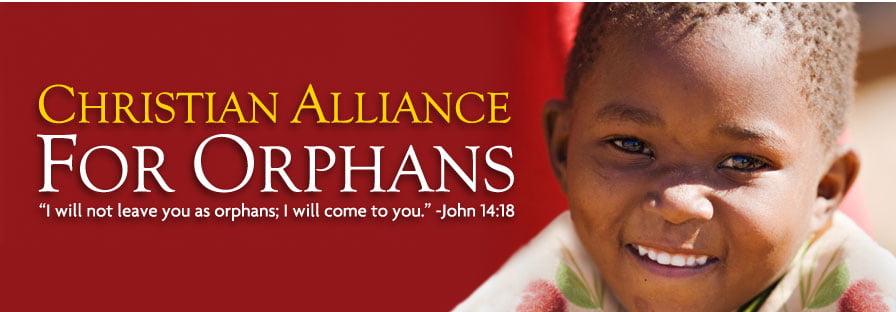 The juxtaposition of my life these past couple days has been interesting—attending a Christian conference discussing orphan ministries and global poverty in a well-to-do suburb of Nashville, TN to now being among kids in poverty in rural villages in Guatemala assisting with feeding programs with the staff of Feed The Children.
The juxtaposition of my life these past couple days has been interesting—attending a Christian conference discussing orphan ministries and global poverty in a well-to-do suburb of Nashville, TN to now being among kids in poverty in rural villages in Guatemala assisting with feeding programs with the staff of Feed The Children.
There’s still much to process. But for now, this is what is coming together in my mind:
One of the best experiences of the Christian Alliance for Orphans Summit for me was the breakout session I attended called, “Straight Talk from Adult Adoptees.”
In the session, a packed room, three adults and one older teen led a panel discussion about growing into maturity from their experiences as adopted children.
Feelings such as “I hated my birth parents or birth country for abandoning me” to “I always knew my birth parents loved me, until they got a divorce . . . “ to “I never really understood why my birth parents would give me up” were shared openly.
But, then the discussion got complicated. We quickly learned there would be no “one sized fits all” answers or even the luxury that “being adopted” would be the defining experience of the panelists’ lives.
One of the adult adoptees shared how her trust issues were complicated by the fact that she learned her adoptive father only agreed to her adoption to save his marriage—which indeed didn’t happen as they divorced six months after her placement with family. She talked about her mother’s complicated re-marriage processes and then shared about the recent death of her adopted mom. All experiences of great loss . . .
But before our minds in the audience could single out her experience as “oh so bad” this adult adoptee stopped us saying directly to us: “Everybody in their life has pain. I have friends who have been through great losses too—deep woundedness that follows them as mine does me. . . . It just so happens that mine is more understandable than some with the label of adoption.”
It was a light bulb moment for me.
She spoke the truth: everybody has deep pain. Everybody is wounded. It's not an adoption issue. It's a human issue.
Being adopted and coming to turns with the abandonment part of it is just one of the ways that deep pain of this broken world can find a person early in life.
Pain is pain. Grief is grief. Loss is loss. And it is something we all understand, the more honest we become with our own story. Experiencing pain is a part of what it means to be human. Experiencing pain is part of what connects us to other human beings.
 Fast forward to this morning as I spent the day with the Feed The Children staff in Guatemala and several other guests at one of our feeding centers in rural Guatemala. As we visited with the kids, played games like hitting the piñata in search for candy, read stories to them, and then of course served a meal (rice with some chicken mixed in, cucumbers and radish salad, and tortillas), I couldn’t help but think about these kids’ pain.
Fast forward to this morning as I spent the day with the Feed The Children staff in Guatemala and several other guests at one of our feeding centers in rural Guatemala. As we visited with the kids, played games like hitting the piñata in search for candy, read stories to them, and then of course served a meal (rice with some chicken mixed in, cucumbers and radish salad, and tortillas), I couldn’t help but think about these kids’ pain.
I thought about the pain these kids may not have words to speak of right now, but pain that will follow them because of the kind of livelihood they were born into.
For, these were kids who came to the center in tattered clothing, dirty faces and shoes that didn’t seem to fit right.
These were kids who starred often at us “white people” with the cameras taking pictures of the festivities with the look of “Wow, what a nice life you have!”
These were kids who have walked to walk miles to school, many of whom depend on the donated shoes from TOMS (one of Feed The Children’s partners) in order to get there safely.
These were kids with great needs, more than I can mention in this post (though of course thanks to the generosity of FTC contributors and sponsors many of these needs are getting met).
They know pain.
Though I did not grow up in a home that struggled to provide me with basic life necessities, I can identify with them. I can identify with their loss, even if it may not be to the degree that their loss is to them.
For at the end of the day, we all just want to be loved. We all just want to know that someone cares about us in particular. We all want not to worry about where our next meal will come from or that we’ll have clean clothes to put on the next day. We want to feel secure in a family system, orphaned or not.
And I believe that when we all get to the point in our lives when we see our stories as broken, as in need, and most of all full of pain of one kind or another—we are given a great gift.
We're given the ability to more honestly look into the eyes of our brothers and sisters in humanity, knowing we’re from the same family. All of us. Because of this, we need each other more than we ever thought.